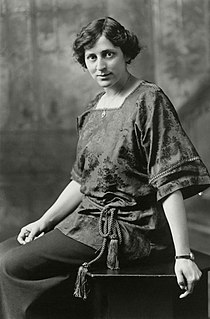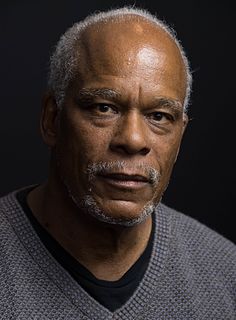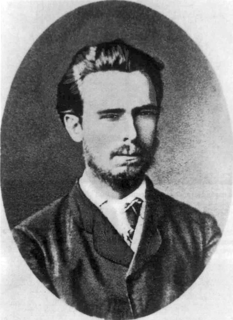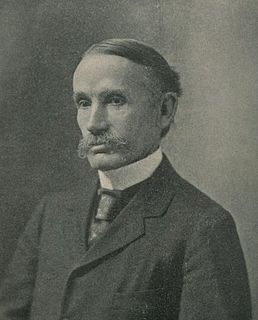A Quote by George Orwell
It was with the last revolution and the coming of INGSOC (Inglish/English Socialism) that the latest High learnt how to keep their position permanently - by cultivating ignorance among the other classes and by constantly surveying them through the Thought Police. Part of this strategy included the maintenance of a state of continual warfare, which Goldstein discussed in the third chapter. The three major powers were not fighting this perpetual war for victory; they were fighting to keep a state of emergency always present as the surest guarantee of authoritarianism.
Quote Topics
Always
Among
Authoritarianism
Chapter
Classes
Coming
Constantly
Cultivating
Discussed
Emergency
English
Fighting
Guarantee
High
How
Ignorance
Included
Keep
Last
Latest
Learnt
Maintenance
Major
Other
Part
Permanently
Perpetual
Perpetual War
Police
Position
Powers
Present
Revolution
Socialism
State
Strategy
Them
Third
Thought
Thought Police
Three
Through
Victory
War
Warfare
Were
Which
Related Quotes
My opposition to war is not based upon pacifist or non-resistant principles. It may be that the present state of civilization is such that certain international questions cannot be discussed; it may be that they have to be fought out. But the fighting never settles the question. It only gets the participants around to a frame of mind where they will agree to discuss what they were fighting about.
I don't believe there is one woman within the confines of this state who does not believe in birth control. I never met one. That is, I never met one who thought that she should be kept in ignorance of contraceptive methods. Many I have met who valued the knowledge they possessed, but thought there were certain other classes who would be better kept in ignorance. The old would protect the young. The rich would keep the poor in ignorance. The good would keep their knowledge from the bad, the strong from the weak.
In accordance to the principles of doublethink, it does not matter if the war is not real, or when it is, that victory is not possible. The war is not meant to be won. It is meant to be continuous. The essential act of modern warfare is the destruction of the produce of human labour. A hierarchical society is only possible on the basis of poverty and ignorance. In principle, the war effort is always planned to keep society on the brink of starvation. The war is waged by the ruling group against its own subjects, and its object is not victory over Eurasia or Eastasia, but to keep the very structure of society intact.
Part of the problem with Occupy Wall Street was that folks were never really clear on what they were fighting for. If you don't know what you're fighting for, how do you know when you've got victory? In some ways, new media makes it easier for people to connect. It's hard, though, because we're much more seduced by the Internet, by big-screen TVs, by cell phones that can do everything.
State ownership and control is not necessarily Socialism - if it were, then the Army, the Navy, the Police, the Judges, the Gaolers, the Informers, and the Hangmen, all would all be Socialist functionaries, as they are State officials - but the ownership by the State of all the land and materials for labour, combined with the co-operative control by the workers of such land and materials, would be Socialism.
Unlike the authors of such warrior classics as The Art of War and The Book of the Five Rings, which accept the inevitability of war and emphasize cunning strategy as a means to victory, Morihei understood that continued fighting-with others, with ourselves, and with the environment-will ruin the earth. “The world will continue to change dramatically, but fighting and war can destroy us utterly. What we need now are techniques of harmony, not those of contention. The Art of Peace is required, not the Art of War.
The great error of nearly all studies of war, an error into which all socialists have fallen, has been to consider war as an episode in foreign politics when it is especially an act of internal politics and the most atrocious act of all . . . Since the directing apparatus has no other way of fighting the enemy than by sending its own soldiers, under compulsion, to their death-the war of one state against another state resolves itself into a war of the state and the military apparatus against its own people.
The only form of revolution beneficial to the people is one which destroys the entire state to the roots and exterminates all the state traditions, institutions and classes…. Day and night [the revolutionary] must have but one thought, one aim – merciless destruction…for him morality is everything which contributes to the triumph of the revolution. Immoral and criminal is everything that stands in its way.
There are those, on the one hand, who hope to achieve the social revolution through the State by preserving and even extending most of its powers to be used for the revolution. And there are those like ourselves who see the State, both in its present form, in its very essence, and in whatever guise it might appear, an obstacle to the social revolution, the greatest hindrance to the birth of a society based on equality and liberty, as well as the historic means designed to prevent this blossoming.







































